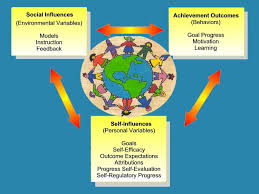Social determinism is a multifaceted theory that posits the social environment as a predominant force influencing human behavior, choices, and consciousness. This concept can be traced back to various intellectual traditions, resonating within the works of philosophers, sociologists, and psychologists. While the basic premise suggests that individual actions and societal structures are inextricably linked, the implications of this relationship extend into various domains, including ethics, politics, and economics.
At its core, social determinism addresses a common observation: individuals are not isolated entities but rather products of their social context. Society, with its intricate web of norms, values, and institutions, shapes the psyche and actions of individuals. It argues that cultural and societal influences can significantly predetermine one’s thoughts and behaviors, often overshadowing personal agency. The theory invites contemplation about the extent to which people are free to make choices independent of their surroundings.
The fascination with social determinism may stem from the human propensity to seek explanations for complex behaviors. Consider the phenomenon of conformity; individuals often align their beliefs and behaviors with the majority within their social group. This phenomenon fosters not only a sense of belonging but also raises questions about free will. Are these people genuinely adopting these views, or are they merely reflections of the societal pressures surrounding them? Social determinism provides a lens through which to analyze such dynamics, encouraging deeper inquiries into the cultural fabric of human interaction.
In understanding social determinism, it is critical to explore three core dimensions: social structures, cultural norms, and socioeconomic factors. Each of these components plays a crucial role in shaping an individual’s worldview and actions.
Social Structures
The structure of a society—encompassing institutions such as family, education, and government—greatly affects its members. Take, for instance, the educational system; it is designed not only to impart knowledge but also to instill values and expectations that align with societal needs. This structured approach promotes conformity while also engendering certain social behaviors. Individuals raised in different social structures may exhibit contrasting worldviews and decision-making patterns, illustrating the profound impact of their environments.
Moreover, social hierarchies perpetuate certain dynamics that reinforce social determinism. Individuals belonging to marginalized groups often face systemic barriers that limit their choices and opportunities. Such inequalities can foster feelings of helplessness, suggesting that their circumstances dictate life path more than personal choice. In this context, social determinism illuminates the struggle for agency and autonomy amidst structured limitations.
Cultural Norms
Cultural norms delineate the accepted practices and beliefs within a community. They serve as a blueprint for behavior, shaping individuals within a specific sociocultural milieu. These norms influence various aspects of life, from the mundane to the momentous. For example, cultural perceptions surrounding work ethic can dictate how individuals pursue career opportunities or engage within their communities.
The process of socialization embeds these norms into individual identity. Through family experiences, educational exposure, and media representation, people internalize the values that govern their realities. The collective behavior emerges as individuals engage with and navigate their cultural landscape, sometimes reinforcing societal expectations over personal desires. Consequently, social determinism examines the intersection of personal aspirations with the ingrained behavioral patterns dictated by one’s culture.
Socioeconomic Factors
Socioeconomic status profoundly influences individuals’ access to resources, opportunities, and ultimately, their decision-making processes. Those born into affluent families may inherit privileges that shape their life trajectories in stark contrast to those from economically disadvantaged backgrounds. Economic constraints can limit access to quality education, healthcare, and social networks, creating a cycle where individuals are often confined to predetermined paths.
Additionally, socioeconomic factors intertwine with systemic issues such as racism and sexism, challenging the notion of meritocracy. As individuals navigate these layers of existence, the interplay between economic realities and personal agency becomes evident. Social determinism navigates these complexities by advocating for a nuanced understanding of how societal stratifications can dictate life choices, altering the landscape of individual potential.
Despite the compelling arguments in favor of social determinism, it is essential to acknowledge counterarguments. Critics posit that such a deterministic framework may undervalue personal autonomy and the capacity for individual choice. They argue that individuals possess the ability to reflect on their circumstances, challenge societal norms, and forge their own paths. This perspective emphasizes the dynamic interplay of individual and society, suggesting that while social contexts are influential, they do not wholly dictate personal trajectories.
Equipped with a deeper understanding of social determinism, individuals can engage more critically with their environments. Recognizing the forces at play enables a more informed discourse surrounding social policies, community engagement, and advocacy for systemic change. As awareness spreads, society can foster environments that empower individuals to break free from limiting constructs and pursue authentic self-expression.
In conclusion, social determinism offers a profound lens through which to examine human behavior and societal structures. It invites exploration into the connections between social environment, individual agency, and systemic influences. Ultimately, understanding these dynamics fosters a deeper appreciation for the complexities of human experience and the interconnectedness of society.
